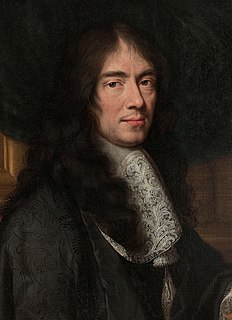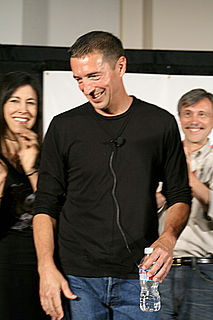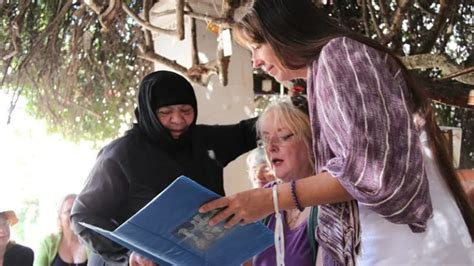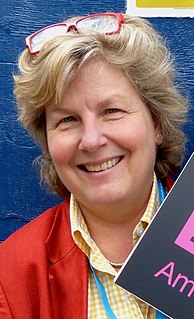A Quote by Charles Perrault
Once upon a time there was a widow who had two daughters. The elder was so much like her, both in looks and character, that whoever saw the daughter saw the mother.
Related Quotes
But that wasn´t the first time I ever saw her. I saw her in the hallways at school, and at my mother’s false funeral, and walking the sidewalks in the Abnegation sector. I saw her, but I didn’t see her; no one saw her the way she truly was until she jumped. I suppose a fire that burns that bright is not meant to last.
I know also another man who married a widow with several children; and when one of the girls had grown into her teens he insisted on marrying her also, having first by some means won her affections. The mother, however, was much opposed to this marriage, and finally gave up her husband entirely to her daughter; and to this very day the daughter bears children to her stepfather, living as wife in the same house with her mother!
Her mother was a Christian Scientist who didn't believe in calling doctors. So when my mother caught whooping cough as a baby, stopped breathing and turned blue, her mother revived her by spanking her on the bottom. She saw life itself as a gift and saw her own survival as precious and a matter of chance.
I can't wait for both my daughters to be old enough to read all my books. I loved it every time I saw my parents acting like more than just my parents. And I'm looking forward to that with my daughters too. I am looking forward to having them discover me as someone completely other than their mother.
I am from a woman's family. My great-grandmother had three daughters and a son. My grandmother had two daughters, and my mother had two daughters. My sister had a daughter and then finally a son. You should have seen my father with the son. He could not believe that finally there was a boy in the family.
In Eden I "saw" that Adam or Eve probably spoke each word FOR THE FIRST TIME and that seemed wild and seemed to me that that might have brought them to some essence of language. Once I "saw" the city, I knew it was real. once I saw that a poem was a house, i knew it was real and could go back to it or else write a flurry of poems around it, both worked.
I have to say, I have to tell you that my kids had a most marvelous time having two moms. When my daughter was at university, she got flu. And both mums rushed to be with her. And we were both looking after her and making soup and tidying up. And one of her friends came in and went, 'Two mums? Not fair.'
Her seductive power, however, did not lie in her looks [...]. In reality, Cleopatra was physically unexceptional and had no political power, yet both Caesar and Antony, brave and clever men, saw none of this. What they saw was a woman who constantly transformed herself before their eyes, a one-woman spectacle.Her dress and makeup changed from day to day, but always gave her a heightened, goddesslike appearance. Her words could be banal enough, but were spoken so sweetly that listeners would find themselves remembering not what she said but how she said it.
Turgenev saw human beings as individuals always endowed with consciousness, character, feelings, and moral strengths and weaknesses; Marx saw them always as snowflakes in an avalanche, as instances of general forces, as not yet fully human because utterly conditioned by their circumstances. Where Turgenev saw men, Marx saw classes of men; where Turgenev saw people, Marx saw the People. These two ways of looking at the world persist into our own time and profoundly affect, for better or for worse, the solutions we propose to our social problems.
When he thought of her, it rather amazed him, that he had let that girl with her violin go. Now, of course, he saw that her self-effacing proposal was quite irrelevant. All she had needed was the certainty of his love, and his reassurance that there was no hurry when a lifetime lay ahead of them. Love and patience- if only he had had them both at once- would surely have seen them both through.
I saw myself. . . in the time I watched, I saw strength and frailty, pride and vanity, courage and fear. Of wisdom, a little. Of folly much. Of intentions many good ones; but many more left undone. On this alas, I saw myself a man like any other. But this too I saw . . . Alike as men may seem, each is different as flakes of snow, no two the same.You told me you had no need to seek the Mirror, knowing you were Annlaw Clay-Shaper. Now I know who I am: myself and none other. I am Taran.


































